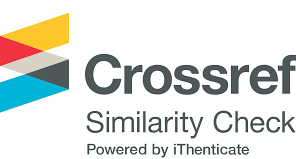Về một thuật toán gia tăng tìm tập rút gọn của bảng quyết định không đầy đủ
Abstract
Mô hình tập thô dung sai là công cụ hiệu quả giải quyết bài toán rút gọn thuộc tính trên bảng quyết định không đầy đủ. Trong mấy năm gần đây, các nhà nghiên cứu đã đề xuất một số thuật toán gia tăng tìm tập rút gọn theo tiếp cận tập thô dung sai nhằm giảm thiểu thời gian thực hiện. Tuy nhiên, các thuật toán đề xuất đều theo hướng tiếp cận lọc truyền thống, nghĩa là bước kiểm tra độ chính xác phân lớp độc lập với bước tìm tập rút gọn. Do đó, tập rút gọn tìm được chưa tối ưu cả về số lượng thuộc tính và độ chính xác phân lớp. Trong bài báo này, chúng tôi đề xuất thuật toán gia tăng IDS_IFW_AO tìm tập rút gọn theo tiếp cận lai ghép lọc – đóng gói sử dụng độ đo khoảng cách. Kết quả thử nghiệm trên các tập dữ liệu mẫu cho thấy, thuật toán lai IDS_IFW_AO hiệu quả hơn thuật toán lọc IARM-I về độ chính xác phân lớp và số thuộc tính tập rút gọn.
References
M. Kryszkiewicz (1998), “Rough set approach to incomplete information systems”, Information Science, Vol. 112, pp. 39-49
Long Giang Nguyen, Hung Son Nguyen, “Metric Based Attribute Reduction in Incomplete Decision Tables”, Proceedings of 14th International Conference, Rough Sets, Fuzzy Sets, Data Mining, and Granular Computing, RSFDGrC 2013, Halifax, NS, Canada, Lecture Notes in Computer Science, SpingerLink, Vol. 8170, pp. 99-110, 2013.
Vu Van Dinh, Nguyen Long Giang, Duc Thi Vu, “Generalized Discernibility Function based Attribute Reduction in Incomplete Decision Systems”, Serdica Journal of Computing 7 (2013), No 4, pp. 375-388.
Demetrovics Janos, Vu Duc Thi, Nguyen Long Giang, “A Distance-based Method for Attribute Reduction in Incomplete Decision Systems”, Serdica Journal of Computing 7 (2013), No 4, pp. 355-374.
F.M. Ma, M.W. Ding , T.F. Zhang, J. Cao, “Compressed binary discernibility matrix based incremental attribute reduction algorithm for group dynamic data”, Neurocomputing, 2019.
W. Wei, P. Song, J.Y. Liang, X.Y. Wu, “Accelerating incremental attribute reduction algorithm by compacting a decision table”, International Journal of Machine Learning and Cybernetics, Springer, 2018.
Demetrovics Janos, Vu Duc Thi, Nguyen Long Giang, METRIC BASED ATTRIBUTE REDUCTION IN DYNAMIC DECISION TABLES, Annales Univ. Sci. Budapest., Sect. Comp. 42 (2014) 157-172.
Nguyen Thi Lan Huong, Nguyen Long Giang, “Incremental algorithms based on metric for finding reduct in dynamic decision tables”, Journal on Research and Development on Information & Communications Technology, Vol.E-3, No.9 (13), pp. 26-39, 2016.
W.H. Shua, W.B. Qian, Y.H. Xie, “Incremental approaches for feature selection from dynamic data with the variation of multiple objects”, Knowledge-Based Systems, Volume 163, pp. 320-331, 2019.
Demetrovics Janos, Nguyen Thi Lan Huong, Vu Duc Thi, Nguyen Long Giang, “Metric Based Attribute Reduction Method in Dynamic Decision Tables”, Cybernetics and Information Technologies, Vol.16, No.2, pp. 3-15, 2016.
C.J. Yang, H. Ge, L.S. Li, J. Ding, “A unified incremental reduction with the variations of the object for decision tables”, Soft Computing, Springer Nature, 2018.
W. Wei, X.Y. Wu, J.Y. Liang, J.B. Cui, Y.J. Sun, “Discernibility matrix based incremental attribute reduction for dynamic data”, Knowledge-Based Systems, Volume 140, pp. 142-157, 15 January 2018.
Y. Jing, T. Li, J. Huang, H.M. Chen, S.J. Horng, “A Group Incremental Reduction Algorithm with Varying Data Values”, International Journal of Intelligent Systems 32(9), pp. 900-925, 2017.
L.N. Wang , X. Yang , Y. Chen , L. Liu , S.Y. An , P. Zhuo , “Dynamic composite decision-theoretic rough set under the change of attributes”, Int. J. Comput. Intell.Syst. 11 (2018) 355–370 .
G. Lang, Q. Li, M. Cai, T. Yang, Q. Xiao, Incremental approaches to knowledge reduction based on characteristic matrices, Int. J. Mach. Learn. Cybern. 8 (1) pp. 203-222, 2017.
J. Yu, L. Sang, H. Dong, “Based on Attribute Order for Dynamic Attribute Reduction in the Incomplete Information System”, IEEE IMCEC 2018, pp. 2475-2478, 2018.
W.H. Shu, W.B. Qian, “An incremental approach to attribute reduction from dynamic incomplete decision systems in rough set theory”, Data & Knowledge Engineering 100, pp. 116-132, 2015.
D.D. Zhang, R.P. Li, X.T. Tang, Y.S. Zhao, “An incremental reduct algorithm based on generalized decision for incomplete decision tables”, IEEE 3rd International Conference on Intelligent System and Knowledge Engineering, pp. 340-344, 2008.
W.H. Shu, H. Shen, “A rough-set based incremental approach for updating attribute reduction under dynamic incomplete decision systems”, IEEE International Conference on Fuzzy Systems (FUZZ-IEEE), pp. 1-7, 2013.
W.H. Shu, H. Shen, “Updating attribute reduction in incomplete decision systems with the variation of attribute set”, International Journal of Approximate Reasoning, vol. 55, no.3, pp. 867-884, 2014.
W.H. Shu, H. Shen, “Incremental feature selection based on rough set in dynamic incomplete data”, Pattern Recognition 47, pp.3890-3906, 2014.
X.J. Xie, X. L. Qin, “A novel incremental attribute reduction approach for dynamic incomplete decision systems”, International Journal of Approximate Reasoning 93, pp. 443-462, 2018.
Z. Pawlak, Rough sets: Theoretical Aspects of Reasoning about Data, Kluwer Academic Publisher, London, 1991.
The UCI machine learning repository, http://archive.ics.uci.edu/ml/datasets.html


